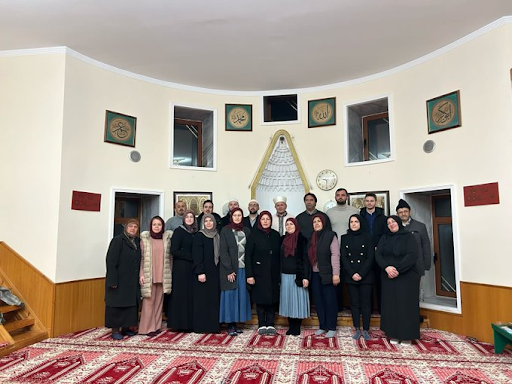Ankara Announces New Animal Protection Measures: Key Decisions by the Provincial Animal Protection Board
The Ankara Provincial Animal Protection Board convened on February 26, 2025, to address critical issues related to animal welfare, public health, and the prevention of infectious diseases. In line with amendments to the Animal Protection Law No. 5199, the board announced a series of decisions aimed at strengthening animal rights and ensuring community safety. These measures have sparked both local and international attention, with animal rights organizations and global stakeholders weighing in on their implications.
Key Decisions and Measures
Revocation of Animal Protection Officer IDs: Due to the annulment of Article 18 of the law, existing local animal protection officer identification cards have been canceled. The Ankara Directorate of Nature Conservation and National Parks will oversee the collection and destruction of these cards.
Shelter Requirements for Stray Animals: Municipalities with populations exceeding 25,000 are mandated to establish or improve animal shelters by December 31, 2028. Stray or weakened animals must be promptly collected and transported to shelters, as per Article 6 of the law.
Ban on Releasing Dogs from Shelters: Rehabilitated stray dogs cannot be released back into the wild. Violations will result in an administrative fine of 71,695 TL (approximately $2,500) for 2025.
Priority Areas for Animal Collection: Stray animals will be collected first from areas with high complaints or attack incidents.
Adoption Limits: Adoption limits have been set to one cat and one dog for apartment buildings, and a maximum of two cats and two dogs for standalone residences. Permits are required for adoptions.
Euthanasia for Dangerous or Incurable Animals: Dogs posing a threat to human or animal life, exhibiting uncontrollable behavior, or suffering from incurable diseases will be euthanized under Article 13 of the law.
Inspections of Breeding and Sales Facilities: The Ankara Directorate of Nature Conservation and National Parks, along with provincial agricultural departments, will conduct biannual inspections. Violations related to banned species or animal welfare will result in administrative penalties.
Allocation of Funds for Shelters: Local governments must allocate at least 50% of their mandatory budget to building or expanding animal shelters and natural habitats until the board deems the facilities sufficient.
Registration of Stray Animals: Shelters must promptly register stray animals in the ministry’s database and provide records during inspections.
Global Reactions
The announcement has drawn mixed reactions from international animal rights organizations. Groups such as PETA and the World Animal Protection have praised Ankara’s efforts to improve animal welfare but expressed concerns over the euthanasia policy. “While the measures to protect stray animals are commendable, the euthanasia of animals deemed ‘dangerous’ raises ethical questions,” said a spokesperson for PETA.
The European Union, which has stringent animal welfare standards, has also taken note of the developments. A representative from the EU Commission stated, “Turkey’s efforts to align with global animal protection standards are a positive step. However, the implementation of these measures must be closely monitored to ensure compliance with international best practices.”
Local Impact and Public Response
In Ankara, the decisions have been met with widespread support from animal rights activists and NGOs. “These measures are a significant step forward in protecting stray animals and ensuring public safety,” said a representative from the Ankara Animal Rights Association. However, some citizens have raised concerns about the practicality of enforcing adoption limits and the potential overpopulation of shelters.
Conclusion
The Ankara Provincial Animal Protection Board’s decisions mark a pivotal moment in Turkey’s efforts to balance animal welfare with public health and safety. While the measures have been largely welcomed, their success will depend on effective implementation and continued collaboration between government agencies, NGOs, and the public. As Ankara moves forward with these initiatives, it sets a precedent for other regions in Turkey and beyond to adopt similar frameworks for animal protection.
The global community will be watching closely as these policies unfold, offering both support and constructive criticism to ensure the best outcomes for animals and humans alike.

















